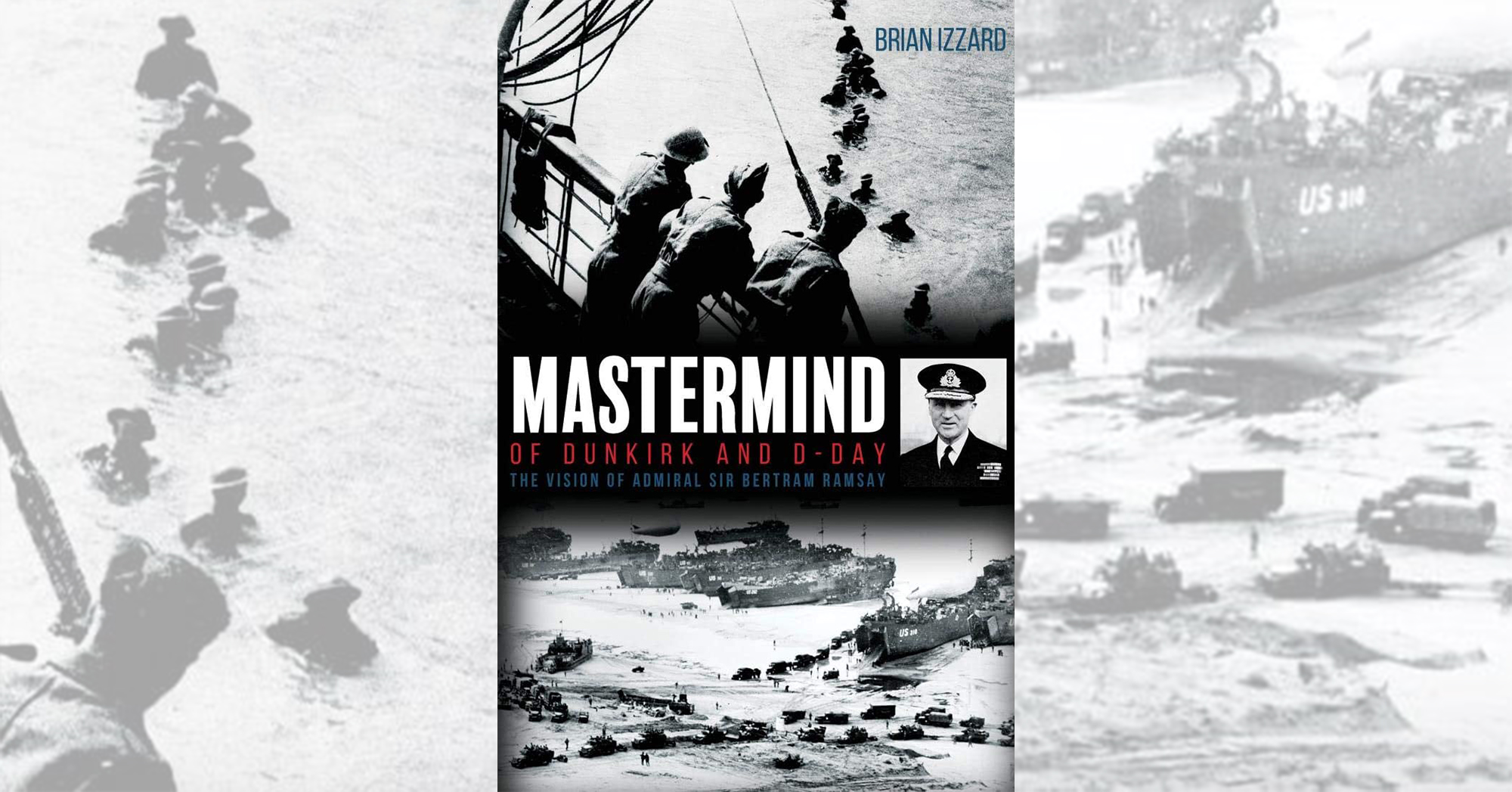Mastermind of Dunkirk and D-Day: The Vision of Admiral Sir Bertram Ramsay, by Brian Izzard, Casemate, Oxford, U.K., and Havertown, Pa., 2020, $34.95
Admiral Sir Bertram Home Ramsay, who joined the Royal Navy in 1898 as a 15-year-old cadet, perhaps improbably went on to mastermind four seminal naval operations in the European theater of World War II. As author Brian Izzard reveals, Ramsay by 1914 had formed the trenchant opinions that peacetime training had been defective, while gunnery officers were ignorant of fleet tactics and many admirals lacked up-to-date views on war. His bluntly stated views prompted a peer to observe, “You are not on a very good wicket for being offered any further appointment.”
Ramsay defied that expectation with his 1939 appointment as a flag officer at Dover. By early 1940 he recognized the imminent necessity of a large-scale evacuation of Allied troops from France, an operation that would require every available naval and merchant ship and a host of privately owned small craft. Operation Dynamo successfully rescued 338,000 soldiers from Dunkirk and was praised by Prime Minister Winston Churchill as a “miracle of deliverance.”
Ramsay was closely involved in the planning of the landings in North Africa (Operation Torch) in 1942 and Sicily (Operation Husky) in 1943, both of which succeeded in large part due to his vision. It was thus no surprise when the able and experienced Ramsay was chosen to mastermind naval operations (Operation Neptune) during the June 1944 invasion of Normandy. Among the subsequent messages of congratulation came one from a former archbishop of Canterbury, who wrote, “I am glad to think that a task of such mingled inspiration and responsibility has been entrusted to you.”
Izzard deftly guides the reader through the labyrinth of often conflicting opinions as invasion plans were drawn up, during which the admiral earned the moniker “Dynamo Ramsay.” Throughout the narrative the author inserts more personal aspects, for example describing the admiral’s wife as “a tall, graceful brunette with hazel eyes and a low, attractive voice.”
In the wake of his hard-earned D-Day success Ramsay was tasked with formulating defense plans for the forthcoming Battle of the Scheldt in Belgium and the Netherlands. Needing to confer with Field Marshal Bernard Montgomery, the admiral boarded a plane on Jan. 2, 1945, which crashed in flames soon after takeoff. Ramsay, 61, was killed instantly.
Izzard concludes by justly claiming that Ramsey’s achievements rank alongside those of Churchill, Montgomery and Dwight D. Eisenhower. This excellent biography goes a long way toward ensuring the admiral and his achievements are more widely known.
—David Saunders
This post contains affiliate links. If you buy something through our site, we might earn a commission.





